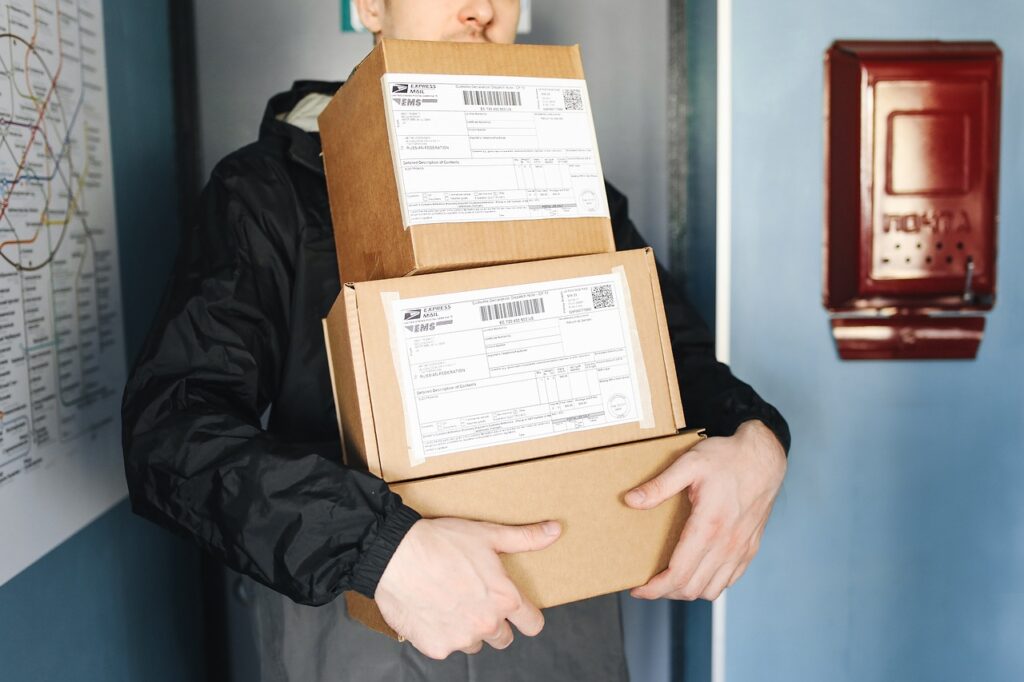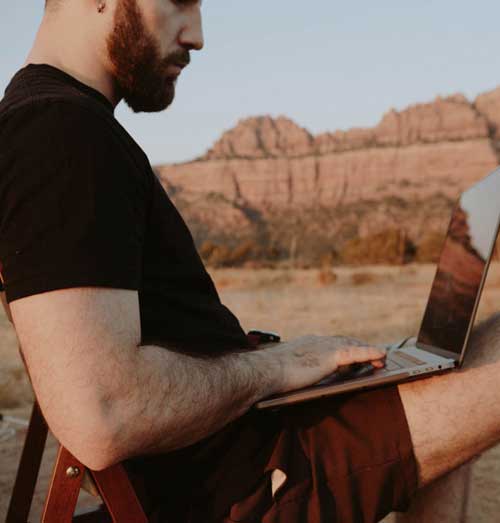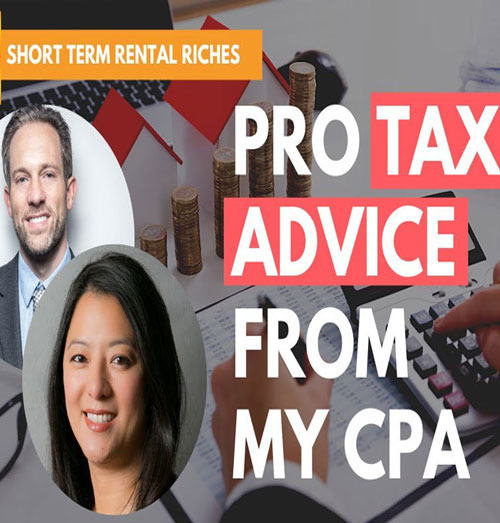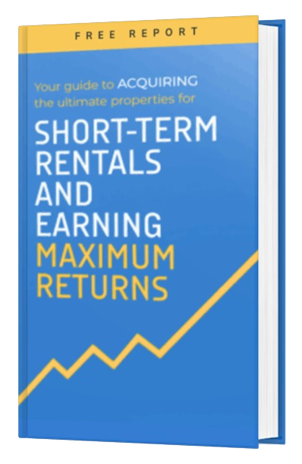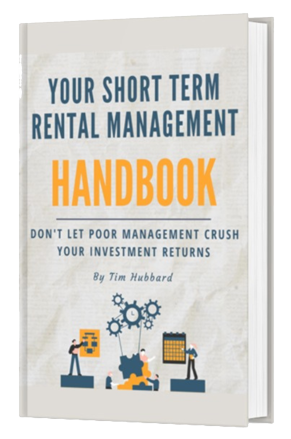224. From STRs to Boutique Hotels – Expert Insights with Mike Sjogren
Join us for an insightful conversation with Mike, a trailblazer in the short-term rental and boutique hotel industry. Having started in the world of STRs, he quickly identified the untapped potential within the boutique hotel niche, transitioning with impressive success.
His story is a testament to the power of vision, hard work, and the importance of adapting to the evolving landscape of the hospitality industry.
In this episode you’ll learn:
- Strategic Growth from STRs to Boutique Hotels
- Discover the unique challenges of running boutique hotels compared to STRs
- Leveraging Technology and Systems for Efficiency
- The Importance of Direct Bookings
- Creative Financing and Finding Deals
His experiences offer a roadmap for anyone looking to diversify their real estate investment portfolio or venture into the world of boutique hotels and STRs. Whether you’re a seasoned investor or just starting out, there’s a wealth of knowledge to be gained from Mike’s approach to real estate investment.
Need help managing your short-term rental and you don’t want to go it alone? Shoot us a message here and we’ll see if we can help.
Are you enjoying the podcast? Please subscribe, leave a rating and a review, and share it! This helps us reach others that may find the info helpful as well.
Click Here to view TranscriptWelcome to Short Term Rental Riches.
We’ll discuss investing in real estate, but with a specific focus on short term rentals.
Quick, actionable items to acquire, manage and scale your portfolio.
I’m your host, Tim Hubbard.
Welcome back, everyone, to the Short Term Rental Riches Podcast.
We know that we can accomplish a lot in a year.
A year’s actually a long time, and so is three years, and so is five.
And the reality is, is when we’re putting in good work, these results compound year over year, and we can do incredible things.
Today’s guest, I’m really excited to have on, Mike has accomplished a lot.
I actually just got back from a conference that he put on, the largest conference in the STR industry.
It was this Short Term Rental Wealth Conference with his co-host, Bill Faith, who we actually had on not too long ago.
So I’m really excited to have Mike on.
He’s accomplished a lot.
I know he’s gonna bring a ton of value to today’s episode.
Welcome to the show, Mike.
Thanks for having me, man.
It feels like we were just doing this a few years ago.
It definitely is flying by.
Yeah, in fact, before jumping on with you here, I went back and I was on your guys’ podcast, the Short Term Rental Secrets.
So awesome podcast as well.
Anyone out there, if you haven’t tuned in to that one yet, please do.
But that was back in 2021, right after COVID when all this craziness was going on.
And it’s just crazy to see how much can change in a few years.
Yeah, man.
It’s a lot of fun, right?
I just remember to have fun.
We are in a fun business.
It’s easy to get sucked in a lot of the craziness that can happen when you’re running a lot of properties, but overall, it’s a really fun business to be in.
It is, it is.
And there’s a lot of ways to be successful at it too.
And so I know you’ve branched out into some really cool thing, boutique hotels, and we’re definitely gonna jump into that.
But before we do, I wanna talk about your conference, cause yeah, I was out there, it was in Nashville.
You guys had a huge turnout, tons of people.
You had excellent vendors there, you had excellent speakers, and I know that was a ton of work.
Can you tell us a little bit about the conference?
Yeah, I mean, it was pretty special.
It was pretty special.
So I don’t even have the final numbers, but I’m guessing somewhere between 2,500 and 3,000 people down in Nashville’s Music City Center, which was a massive venue.
It was like a city block.
It was our third year doing the event.
The first two years sold out with a thousand people.
We used to have it over at the Wild Horse Saloon, which was a super cool venue, but we kind of outgrew that fairly quickly.
And Bill and I just had a talk.
We’re like, all right, we gotta go big now.
So it took a lot of planning and huge, huge kudos to Bill Faith and Chris Wharton, who live down there.
So they were, you know, the boots on the ground, doing a lot of the physical planning and execution of that, but it came together so well.
And it was cool, because we ended the conference where Bill and I interviewed Damon John on stage.
And it was like stepping into a dream for me, because back in 2019, I went to Grant Cardone’s 10X conference.
And this was before I had a podcast or anything like this.
I think I had like five properties at the time.
And I remember on the way home, I made a vision board, and I Photoshopped myself on Grant’s stage.
And I used to visualize myself like interviewing Damon John and Steve Harvey and all these other people.
And five years later, almost to the day, it was literally Super Bowl weekend when I was at that conference.
It was almost five years to the day, I was the one on stage interviewing Damon, which was pretty cool.
Yeah, man, it was amazing, amazing.
So I loved your story.
You kind of covered your journey a little bit in your specific talk.
You had several up there.
And we’ll unravel a little bit of that.
But yeah, thanks for putting it on.
I know that’s a ton of work, Micah.
We’ve done a few little live conferences, pretty intimate.
And I know this was a lot of work, having 30 people there.
So 2,500 people, I couldn’t imagine it, but you guys definitely pulled it off.
We actually, we did a live interview there with one of your excellent vendors too, that we’re gonna release on next week’s episodes.
Excited for everyone to hear that.
But it really only takes a couple of nuggets.
You just have to find a couple little gold nuggets when you’re at a conference or when you’re at a networking event.
And there was a lot to take away.
I mean, you guys covered everything from pricing to strategy and, you know, AirDNA and Price Labs and all the big vendors are there, all the technology companies, which seems like, you know, there’s five new ones every single day, doesn’t it?
The vision that Bill and I had was to create a space, an event that was entertaining, educational, but just brought a lot of good energy.
And some of my favorite parts of those events are just going and networking with all the people that are there, and everybody’s just so excited and so open and willing to share.
And just, it was just a really cool environment to be in.
Definitely, definitely.
Well, thanks again for putting it on.
And let’s go ahead and jump back a few steps.
I think when we last met up, I know you had some cool things, you had a lot of cool things going on already, but before we can really be successful with things and accomplish a lot at the same time without the wheels falling off, is setting up systems, right?
And having help.
And I know you’re really big on that.
And you guys actually train VAs for other people now.
Is that right?
Yes.
Do you want me to start from the beginning?
Cause I think it’ll tie in to why I was big on this.
So the reason I got into this, and it’s interesting and ironic because tomorrow we were talking offline, tomorrow we’re going back to the hospital, my wife’s having our second child.
But seven years ago, when she was having our first child, I’ll give you the cliff nose version.
Basically, he was born with a very rare lung disease.
And we spent a lot of time at the hospital and it was crazy for like two years.
And this was before I got into real estate.
I was a CPA for 10 years, had a good income, stable career, nice house in the burbs, all that jazz.
But then when he was born, we spent so much time at the hospital that at a certain point I ran out of vacation time, I ran out of sick time, I had all these hospital bills piling up and I had to leave my wife and my son in the hospital to go back to a desk and trade time for money.
And I was just absolutely crushed.
And I told my wife when I left the hospital, I said, I don’t know how I’m going to do it, but I’m going to find a way to build us a business that gives us the income we want without ever trading time for money again.
And I knew real estate was going to be the vehicle.
Ever since I read Rich Dad Poor Dad in my twenties, I’m like, all right, this makes sense.
I’m going to figure this out.
But shortly thereafter, I met a gentleman in a mastermind group who was doing what we now know is rental arbitrage.
And this is back in 2016.
I had never heard of it.
I didn’t even think it was legal, to be honest, but he was showing me his numbers and I was like, this is nuts.
He was making anywhere from 1000 to 2000 bucks on these properties every month that he didn’t own.
And I’m like, I told my wife, I said, this is gonna be our ticket.
I don’t know about this whole weird leasing thing and like re-renting it without telling the owner, like it just felt weird.
But I’m like, let’s go all in on this thing.
So I pulled a loan out of my 401k, got a 0% interest credit card, bought a little two-bedroom condo up in the mountains in New Hampshire.
And I’m like, we’re gonna just go all in.
And when we launched, it was just like this guy showed me.
We were netting about 1500 bucks in cashflow a month.
I was like, this is amazing.
I can’t live off of 1500 bucks a month, but we have proof of concept.
And so I started thinking about how could I scale this?
Cause now I have no money left at all.
And so I thought about like what people were doing with syndications and apartments.
And I’m like, well, what if I just find these investors that have these small duplexes and three families or single families, and I show them this model and I’ve run it for them.
And I just take a piece off the top cause there’s so much spread.
And so it took me nine months, but eventually I got my first co-hosting deal.
And then a few short months later, next thing I know I’ve got, went from like one to two to five to 15 in a very short period of time across five different states.
And I was able to retire my wife, myself and my mom within like a year and a half of getting into this.
It was just a wild journey.
And fast forward now, we’ve got 82 doors in three different states, couple of boutique hotels, and it’s just completely changed my life, man.
It’s been such a blessing and a crazy ride, but I wouldn’t trade it for anything.
So getting back to your original question, that was a long-winded way of getting there.
But the whole point was again, building a business that would give us income without trading time.
And the only way to do that is if you build good systems and you get good people that can run those systems for you.
And I fumbled through that a lot.
I hired my first VA when I had eight properties, which is probably a little too long to wait, in my opinion, but I was terrified to hire anybody, to be honest.
And I went through four or five VAs.
They’d last a month or two months, and then I’d get rid of them.
And then eventually I found this gentleman named Mark and hired him and found out he was employee number three, three or four, at Airbnb’s call center in the Philippines.
And he grew that office to 5,000 Airbnb reps.
And so when we needed to scale, he just would go back through his Rolodex and grab people that used to work for him and offer him better pay and a better opportunity with us.
And so we built up this team.
And then as I started coaching on this stuff a few years ago, my students were like, hey, can you recruit VAs for us?
So I was kind of doing it on the low key, like here and there for people.
And then the demand just got crazy.
And eventually, Mark couldn’t run my portfolio anymore.
He was so busy recruiting.
So now we stood up a whole, called our VPMs, our Virtual Portfolio Managers, to just recruit those for people.
And then the biggest lesson, though, is you get the right people, but then you need the right systems and the right onboarding and training and weekly cadence with that team.
Like, the mistake I made was I was okay spending a lot of time and money investing into a property.
You have to look at your team as the same as you would a piece of real estate.
It needs time and money, and you gotta nurture and pour into them, and then you get the most out of it.
You get the best returns.
And so when I started to do that, instead of just handing them this giant SOP playbook and say, figure it out, it’s all in there, we created a really good onboarding process with training and working with me, and then eventually working with the team and all these things.
And if I didn’t have that, there’s no way I’m doing any of these hotel deals and anything else, because it’s just a team sport when you scale up into the commercial space.
Yeah, I know it absolutely is.
And that’s one of the exciting things about the space too, and just where the industry, where the world’s going, right?
I mean, we can hire people from all over the world.
We can live wherever we want in the world as long as we have good internet, right?
And so, yeah, we’ve been fortunate with our team.
We have a fabulous team too that are spread out in Philippines and Europe, and it’s just, it’s really exciting.
Tons of opportunity.
And it’s with these teams that we can accomplish bigger and better things, right?
We can’t do it all on our own, especially in this industry.
There’s so many moving pieces.
So when we were last on together, I think you had already acquired a hotel.
I’m not sure how long you had had it, but I know after being at your conference recently that you’ve grown that a lot too.
So can you get us up to speed?
Yeah, so the first deal that we did was a little 13 room boutique hotel right on the water, about an hour north of Boston.
Great location, needed a lot of love, right?
So we basically repositioned that property, got the nightly rates up.
It’s done very well financially.
It’s one of my favorite properties still.
We’ll be doing an addition on that in the fall actually.
We’ll add eight more rooms.
We’ll have 21 rooms on that one.
And then two of the partners that I had on that deal, they ended up, I think they did a 1031 off of some apartment and they bought a 21 unit hotel and they asked if I would manage it.
So I did that for a couple of years.
And then this last deal, three of us went in on it and it’s a 57 room hotel, not too far from where I live over by Salem, Massachusetts.
Great property, great bones.
And we’re about halfway through.
We just finished phase one and launched 30 rooms.
10 of them are very crazy themed immersive rooms, which is super fun.
We do a lot of stuff down in the Disney markets.
We took that up here and the response has been amazing.
People are loving it.
And we’ll have another 27 rooms live in about a year, because that’s basically a full gut reno.
That’s awesome, man.
That’s awesome.
Congrats.
I know you put in a lot of work.
So where do you think that the world of short term rentals leaves and just becomes the hotel world?
I mean, is there like a unit size there for you or what do you think?
No, it’s because they both have their place, right?
So like at the beginning, I would take any deal that would generate cash flow, right?
To just build that up.
Now, I’m at a point where the hotels are great.
They’re amazing for forcing appreciation and building wealth and cash flow and all these things.
Those are always going to be good to keep growing and doing those.
And they’re fun.
But I also like to just get some nice STRs in places that I like to go to.
Like I was just looking at one in Hawaii the other day.
I’m like, huh, I’ve never even been to Hawaii, but it’d be cool to own a house in Hawaii that I could go and visit and make me money, right?
So they both have their place.
What I would say, if you’re brand new or you have like a couple properties, I wouldn’t necessarily jump right into a hotel unless you have a partner that has some experience because there is a pretty big learning curve.
There’s some similarities for sure, but there’s definitely a lot of differences and the stakes are just a lot bigger when you’re dealing with commercial property.
It’s totally doable.
I’ve done it.
I’ve helped a ton of other people do it, but I wouldn’t necessarily dive right into that as like my first or second deal without a partner that has maybe done it before.
Yeah, I gotcha.
So, well, I want to pick your brain about partners.
But before we do that, I want to just dive into commercial property a little bit more because it is a totally different animal, right?
We have residential properties up to four units.
And then when we go to five units or more, we enter the commercial world, which is valued differently.
There’s different loan types.
I personally think that there’s a ton of opportunity coming up because of deals that people got into over the last few years, not having fixed financing.
We’ve seen multifamily properties devalued quite a lot nationwide.
A lot of my properties are smaller multifamily stuff, so I’ve sort of been in the commercial world.
But hotels are valued the same way as a large apartment building.
Do you want to talk just a little bit about the opportunity with the way commercial properties are valued?
Yeah, the thing that I love about commercial, and again, I’m a numbers guy, right?
So it’s just a very simple formula.
But the value of a property is directly based on the net operating income that you produce with it.
So if you bought, I’ll give you an example, I bought an 11 bedroom house near Disney World.
And the most that a property had ever done in that market was I think $175,000 in annual revenue.
I bought that property, we fixed it up, optimized it.
It did 300,000 in its first year.
That’s amazing for cashflow, but it doesn’t mean that it’s gonna almost double the value of the property, right?
In the commercial world, it does, which is why it’s so cool, because you can really force that appreciation.
You have a lot more control over the value of the property.
So we could do a whole class on this, but you take your net operating income divided by a capitalization rate.
And again, we could do a whole webinar on that at some point, but let’s just assume it’s 8%.
So for every dollar that I increase my net income or net operating income, it increases the value of the property by $12.
So there’s a 12X return.
So you compound that over 50 grand, 100 grand, half a million, a million dollars in net operating income.
You create some serious equity and some serious wealth very quickly, and you have a lot more control over it, which is why I got so excited about it, because I was like, okay, this math is ridiculous, and you can really force some crazy numbers with a lot less deals, right?
It would take me a long time to go buy 57 houses, or I could just buy one 57-room hotel, right?
So one transaction.
Again, there are a bunch of nuances, like you said, insurance works a little different, lending works a little different, a bunch of other things are a little different, but it’s the next logical progression for somebody that wants to scale a hospitality portfolio.
And there’s also, like you said, a lot of opportunities for people that bought deals that they’re gonna be underwater, but there’s also a ton of mom-and-pop baby boomers that have owned these things forever in that 10 to 40-unit size that wanna retire, they wanna get rid of them, they haven’t updated them, and there’s just a lot of room for opportunity and creative financing with those types of deals.
Yeah, great insights there.
And I guess with that creative financing, that’s sort of a nice segue into, a lot of people when they think about bigger deals, I can’t go out and buy a $5 million property or whatever it happens to be.
And so there’s lots of ways to do it, right?
We talk about OPM all the time, so of course there’s creative financing options, but you can also partner with people.
And it sounds like that’s maybe one of the routes that you’ve gone with some of your properties.
Do you want to talk a little bit more about that?
Yeah, so our first deal, we got some seller financing, because again, it was going to be tough to finance that type of property just based on the condition and the finances that it was in.
So we got some seller financing.
And then I was the operations guy, and I brought in two partners as the capital partners.
And we just did a three-way split with the goal of repositioning it to refinance and get their capital out.
And so that was what we executed on, and it went well.
And then in the latest deal, it was important for me that I wanted to be also a capital partner.
So we just went even three ways, but you don’t have to, right?
Like if you’re a good operator and you bring that skillset, there’s a lot of people out there that are successful entrepreneurs and business owners and high W2 earners that want to get into real estate, but they don’t have the time to learn this stuff and execute on the plan.
You can be that workhorse and earn your equity that way and earn your paycheck.
So there’s a lot of different ways to do it, as long as you have the right skill set, right?
There’s a lot of opportunity.
And with commercial, there’s just so much more meat on the bone that if you bring in partners, everybody’s still making a good amount of money because there’s such a bigger deal.
Yep, I agree.
It’s exciting.
My first entry into real estate was working as a commercial broker, and this is what my boss did, these big deals, and they always partnered and they made a lot of money and they shared resources and expertise.
Well, that’s great.
So, let’s say we’ve got some good partners and or maybe we have the money or we think we can get the money.
How do you actually go about finding deals?
And I know this isn’t like, you can’t just answer it in a couple words, but just any tips around that.
So, the commercial world is very different than residential and that the commercial world is an insider’s game.
And what I mean by that is, if Tim is going to list one of his commercial properties, he’s going to call his broker, he’s going to say, hey, you know, I don’t really want this out there that much.
I’m thinking about selling it.
Do you have anybody that might be interested in buying this?
So that broker is going to go back through their cell phone and reach out to every single investor that has bought a deal from them in the last five years.
And he’s going to say, hey, I’ve got this deal.
Here’s what we’re thinking.
Is this something that you’d be interested in?
If all of them pass on that deal, then it ends up on the internet getting fully marketed on Loopnet and Crexie and all these other places.
So, the more relationships that you build with brokers and investors and other people in real estate, the more deals they’re gonna get first dibs on.
Now, the first deal we did, I was off of Loopnet.
It was just sitting there for a long time and the seller wanted way more than it was worth.
And finally just got tired of it and we were there at the right time and right place to just make an offer.
So, I’m not saying you can’t get deals off of Loopnet and those other sites, but typically all these other deals you’re gonna find off market through your name.
Yeah, I couldn’t agree more.
That’s exactly how it worked when I was working as a broker.
But I also have gotten properties off of Loopnet that were just sitting there.
They were sitting for a long time.
I wouldn’t say they were, in my experience, they weren’t as good as the ones that the brokers brought me, right?
So, if you guys out there have your eyes set on a certain market, you can get on these broker lists a lot of times.
You go to their website, start seeing what they send out publicly.
Just remember that the good deals are probably getting snatched up before those public lists go out, but it’s a good way, as Mike mentioned, to start building relationships and to sort of get your head in the door.
Well, Mike, can you tell us, I know these big projects, there’s a lot more going on.
It’s nice that you could use a lot of the systems from your STR space in the hotel space.
Can you talk a little bit about some of the things that carried over really easily and then maybe some of the biggest differences between the two spaces?
Yeah, so I mean, the locks, I use the same locks.
I use the same PMS.
I use Guesty Pro.
Shout out to Guesty.
I have tested other hotel PMSs.
If you’re gonna just do hotels, and it probably makes more sense to use a cloud beds or a true like hotel PMS, but when you have a blended portfolio like I do, you can run them both through Guesty.
I use a software called Links that integrates the locks to Guesty.
We use the ring cameras, the noise aware sensors.
You could use Minute, whatever.
All that tech is very similar.
The big curve ball that I did not anticipate was the volume of phone calls that you get with hotels.
People are just trained to call the hotel.
You get phone calls with STRs, but it’s like usually only if there’s an issue.
Everybody seems to call the hotel.
So we’ll have 500 to 1,000 inbound phone calls per month per hotel, which was very overwhelming at the beginning.
I did not anticipate that.
So again, we added more of our VAs, got them trained up on answering the phone and talking to guests and do all that stuff like they do on the STRs.
But we needed to add more bodies quickly just to handle the call volume because there was so many calls coming in.
The other thing is less than 10% of my bookings come from Airbnb.
So if you’re used to getting a lot of bookings through Airbnb, hotels, most people aren’t going to Airbnb to book a hotel.
They’re just not.
So it’s a totally different game on that side.
We obviously push for direct bookings.
If you know Mark Simpson, my guy, he’s always pushing direct bookings.
We’re 60% at our hotels on direct.
And then the next largest is going to be booking.com and Expedia.
Those two are the big ones for the hotels.
And a little tip for the hotels is anytime you get a guest, I always push them to leave us a review on Google.
I don’t care about the other platforms.
I ask them to leave me a review on Google, because when people go to travel, they go to Google and then they search hotels in whatever the city is.
So we show up organically just based on the number of five-star reviews that we get.
And we don’t pay a lot for like SEO or marketing or anything like that.
We just push Google reviews over and over and over again.
I don’t care what platform they booked, I want a review on Google.
That’s awesome.
Wow, 60% direct bookings.
That’s a much higher net margin there too, right?
Now paying all those booking fees.
And also makes it more secure for you guys, right?
I mean, we know that Airbnb are actually right now, they’re changing their international fees, right?
I think they just added 2% for international transactions or something in Airbnb, which gets tagged on to the guest side.
And so they can do that whenever they want, but if we’re booking directly, we’ve got all the control, so that’s awesome.
You know, one of the nice things when I think about hotels is just the economies of scale, right?
You’ve got a lot of rooms, a lot of rentals under the same roof.
And I know one of the biggest challenges with short-term rentals is housekeeping.
And so how are you guys handling the housekeeping and how helpful has those economies of scale been for you guys?
So when we first got into it, I had a very, very strong third party cleaning company that did a lot of my portfolio around here.
And so they were taking care of the hotel and that worked for about a year and a half.
And then once we added the second hotel, then it just got to be way too much and they got overwhelmed and that quality started to drop.
And they’re having panic attacks because it’s like such a tight turnaround and you have so many rooms that we got to the point where like, okay, we have to take this in-house, right?
So we built full in-house cleaning teams for all three of the properties, set it up so that we have a supervisor at some of the properties, they would manage the cleaning teams for some of the ones that were running remote.
We would look to see who the strongest cleaner was that had some leadership skills and then coach them up a bit.
And then they became the lead cleaner.
So they were like eyes and ears on the ground, almost like a supervisor that would manage the team, manage the schedules, reorder the supplies when we needed them, those types of things.
So yeah, we ended up having to take everything in-house because I just found it wasn’t sustainable with third-party companies.
That probably helped you guys out quite a bit with your profit margins too, I would imagine, right?
Bring it in-house?
Yes and no.
And I think it’s more about when you have two turnovers in your slow season, or say five turnovers out of 20 rooms, you’re still paying these W2 people, whether you have 20 rooms or five rooms to clean, they want an income, right?
And they want a consistent schedule.
So managing that, it wasn’t as big as a cost savings as I thought, but it was more of a quality control that we really benefited from, that our reviews started to climb again, they got familiar with the property, they could even help guests out here and there if we needed them to.
So it was originally, I thought it would save us more than it actually has.
And again, there’s always operational efficiencies to tweak, but it was more about the quality control and the overall guest experience that became much better when we took it in-house.
Gotcha, and that goes a long way, right?
If we’re dropping the ball with our quality and we get bad reviews, that’s a place we don’t wanna be and that affects our margins.
So, gosh, well, I feel like I could pick your brain all day, Mike.
I think hotels are really exciting.
I guess we talked about some of the big benefits just in the way that the properties are valued.
We talked about the economies of scale and some of the things we can do there.
Some of the things you didn’t expect, like the huge inbound phone call volume.
Well, what’s next?
What do you have next on the drawing board?
Where do you see things heading?
I mean, for me right now, I’m gonna take a breather.
I’m gonna have this baby tomorrow and take a beat.
Tomorrow, congrats, by the way.
That’s very soon.
And then, you know, we’ve got another 35 units in development right now between those two properties.
So that’ll take some time.
And then, I don’t know, we’ll see if I pick up another hotel this year.
I really wanna get another one or two high-end STRs.
Again, more of like lifestyle assets that earn a good return, but they’re fun to travel to.
So I’ve been grinding pretty hard the last year, year and a half.
And so now I’m just gonna take a beat, enjoy the summer, hang out with the baby, and just join the Freedom Boat Club.
We just moved and now we’re right by the water.
So spend some time on the boat, on the golf course, just enjoy the fruits a little bit this summer and then reevaluate.
Well, that’s great to hear.
That’s good to hear.
It’s good to have a good balance and enjoy the fruits of our labor, right?
Actually, that leads me into my next question, which I ask everyone that comes on the show.
The name of the show is Short Term Rental Riches.
And so a lot of people, when they hear the word rich, they think of finances, right?
That’s sort of the first thing that comes to mind.
But we know, and as you were just talking about, the world is not just about more money than we can spend.
So what’s one thing in your life that maybe you’ve adapted or you’ve changed recently that’s enriched your life, but in a non-financial way?
I don’t know if this is the best example, but one thing I did recently was I’ve tended to always be a night owl.
I love getting up early, but if I burn the candle at both ends, it doesn’t work well.
So I’ve been going to bed earlier and getting up around 4.30, 5 o’clock.
But instead of doing what I used to do, it should be like, all right, get up, work out, do meditate, all that stuff.
And I got this from Alex Hormozzi.
I flipped it.
So now when I get up, I’ll take a shower, I’ll go get my coffee, and then I’ll crank out work for two to three hours before anybody else is awake.
So I take all of my big things, most important things that I need to get done, and I get them done right away in the morning.
And I’ve been really liking it because it’s like this liberating feeling that by the time I drive my son to school, I have this freedom to kind of focus on whatever I want to do for the day.
So I can go get a workout in at 10 or 11.
It doesn’t matter.
But all of those big rocks that I need to get done during the day, I’ve already knocked them out before anybody else was awake.
And so that little shift has been very relieving.
I didn’t expect it to be, but I’ve really enjoyed it.
And it’s just such a change from what I used to do, which is I got to do my miracle morning type stuff before I start my day.
I kind of flipped it over a little bit and I’ve been liking it.
So have some fun with your morning routine.
There’s no perfect way to do it.
Yeah, that’s good insight.
Yeah, there’s no one size fits all model is there.
So it’s good to experiment, good to reflect.
Mike, gosh, great having you on.
I know that we could chat for hours and you got a lot of cool things going on and you’ve accomplished a lot of cool things.
I’d love to have you on again in the future.
But in the meantime, where can people find you?
What’s the best way to connect?
Actually, what I would love is give me a follow on YouTube.
So when I get back from this little daddy sabbatical, I’m gonna go pretty heavy on YouTube.
We have a lot of content on there, but I’m gonna be reworking the YouTube channel.
If you search at STR secrets, you’ll find it.
You’ll find my mug up there.
And I really wanna push to basically build a lot of free training, a lot of almost like mini courses in YouTube, especially for the folks that are getting into it, because there is a lot of bluff and a lot of misinformation.
So I just wanna put a lot more free trainings together for you guys.
You can check out STR secrets.
You can find me on Instagram.
I was the Airbnb guy for a long time.
I recently changed that to mike.sjogren, because I’m doing a lot more than Airbnb these days, so it didn’t really fit anymore.
But yeah, if you search for me, you can find me on all the platforms.
Awesome, Mike.
Well, thanks for everything you put out there, and it was great having you on.
Thanks for having me.
If you’ve been listening to the podcast for a while, well, then you know that I love technology, and we can save a ton of time implementing AI artificial intelligence in the right ways.
My team and I have been playing around with this for months, and we’ve written the perfect prompts that you can just plug in to your favorite AI tool, like ChatGPT, to help you uncover exactly who your guest avatar is, help you write your listing descriptions, help you write your photo captions, and so much more.
It’s a living, breathing document that we’re consistently working on, and I’d love to give it to you for free for being one of our loyal listeners.
You can head over to restmethods.com forward slash AI and get your copy for free.
I hope it helps you along your short-term rental journey.





